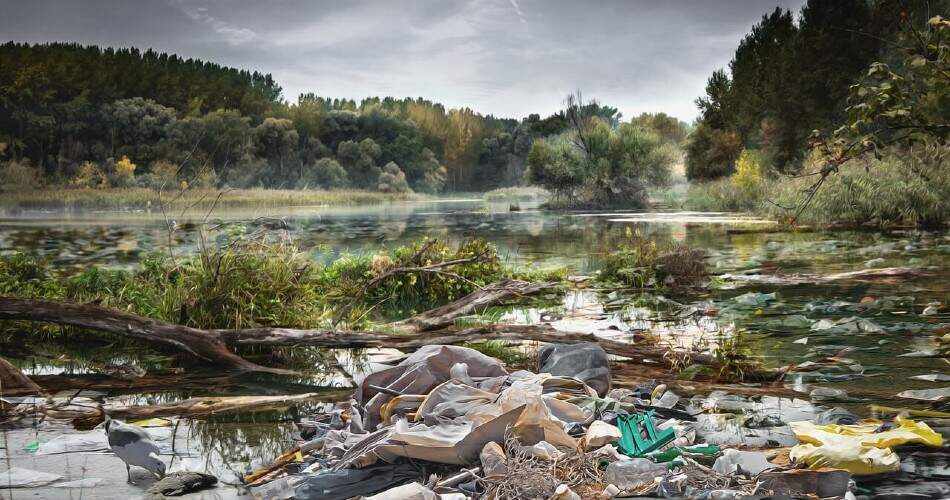Estimated reading time: 4 minutes
Clean water is not only a necessity for human beings, but plants and animals also rely on free-flowing water that fills the oceans, rivers, lakes, and ponds of our great Earth. As humans, we hold the sole responsibility for preservation of the purity of waters, there must be carefully put into the amount of pollution we create, not only for ourselves but in the industries that we support with our money.
Water pollution has an effect on human life. In India, approximately 1000 children die each day due to intestinal diseases caused by improper filtering of drinking and cooking water, also, about 500 million residents of China have no access to proper drinking water. The problem spans much further than developing nations in Asia, however. The United States, United Kingdom, and other nations face polluted water on a daily basis. In the United Kingdom, many cases of water pollution stem from improper precautions taken by farmers and draining of their lands. The United States is a large nation with many bodies of water. Many of these present dangerous levels of pollution. Studies have revealed 45% of streams, 32% of bays, and 47% of lakes tested, revealed contaminant levels high enough to classify such bodies as polluted. With humans relying on clean fresh water for everything from drinking and cooking to bathing and cleaning, the issue of clean water is a dire one.
Nature also relies on fresh and clean water. Many took great notice of the television, internet news sources, and other media when word of the oil spill in the Gulf of Mexico became public. For some, this was a wake-up call as to just how many animals are dependent on the water our Earth provides. As harrowing photos of oil-slicked waterfowl and sea life emerged, people took notice of the wildlife in danger. However, the problem of water pollution did not begin over the summer of 2010. Animals and plants that have been relying on clean water have perished at alarming rates in areas where they should be protected and not neglected. The Chinese lake, Tai Lake is an infamous example of dangerous pollution to water that has spanned decades and has left this once bountiful piece of nature barren. There are nearly no fish left in the lake, the water is not drinkable, and the stench of the lake stretches for miles. This is an issue that affects both humans and the wildlife of the area, which either simply perished or attempted to move onto cleaner areas. Poor mining practices have caused the Kafue River in Chingola, Africa, to be an inhospitable environment for the local wildlife. The river caused the death of many local fish and fowl. An additional, extremely serious, by-product of polluted water is acid rain. When polluted water evaporates into the environment, a dangerous chemical reaction occurs. Sunlight fuels the process, combining sulphur dioxide and nitrogen oxide to create dangerous levels of acidity in the precipitation. The initial damage is clear. Animals and plants exposed to acid rain become badly harmed, ill, or perish due to the conditions. The problem also persists as the rain is seeped into the soil, creating an unliveable environment for plants and animals in the future as well.
Causes for water pollution are widespread. Many industries contribute to the problem. Additionally, humans are causing pollution. Industrial waste is a large-scale danger to clean water. Many plants and factories still use fresh waterways to carry their waste away from their facilities. This waste then becomes a part of other water bodies and dilutes and disperses many miles from the initial site of contact. Contaminants such as lead, mercury, nitrates, phosphates, sulphurs, oil and other petrol-based chemicals, and asbestos are some of the most common pollutants. These can cause anything from cancer and mercury poisoning in humans, death to marine life, and eutrophication. Eutrophication is a result of an over-abundance of nutrients in the soil, which can result in an overgrowth of algae. Common culprits of eutrophication are farmers, who allow their fertilizers to seem into the nearby waterways. As stated above, oil spills are also dangerous for the environment, affecting every animal, plant, and human being that encounters a harmful mix of water and pollutant. Underground storage tanks used for petroleum also pose threats as their steel casings wear away and leak into the surrounding areas. The improper treatment of sewage causes many water-borne issues, especially in developing countries. This leads to sickness and even death of humans and animals alike. Finally, people cause water pollution as well. Dumping trash into bodies of water causes immense damage to the ecosystem of that water. Additionally, humans that do not reduce their carbon footprint only contribute to the spread of global warming, which causes imbalances in ecosystems.
Humans, plants, and animals need water to survive. Without clean water, all three will perish sooner rather than later. It is the responsibility of not only industry and organizations but also the everyday person to protect the Earth. Proper care of this great planet is the only way to ensure that it is a wonderfully fruitful place to live for generations to come.
If you want to find out how transportation affects global warming, check out our article on this topic: How does transportation affects global warming?
[Photo from Pixabay]
